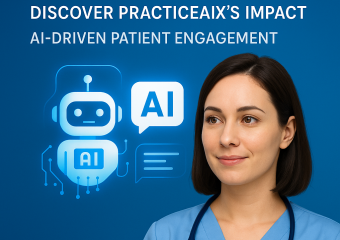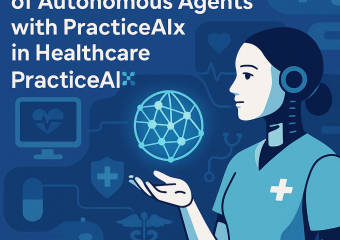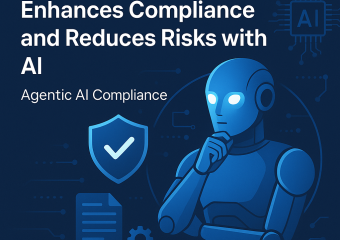Top 10 AI Innovations Reshaping Local Healthcare Practices in 2025
Artificial intelligence is transforming nearly every industry, but in healthcare, its impact is especially profound. In 2025, AI continues to redefine how local healthcare providers diagnose, treat, and manage patient care. From rural clinics to urban hospitals, these cutting-edge technologies are making healthcare more efficient, personalized, and accessible. Let’s explore the top 10 AI innovations that are reshaping local healthcare practices today and setting the stage for the future.
1. AI-Powered Diagnostic Tools
One of the most impactful AI innovations is the use of advanced diagnostic algorithms. AI systems analyze medical images such as X-rays, MRIs, and CT scans with incredible precision, helping local healthcare practitioners detect diseases early and accurately. This alleviates the shortage of specialists in rural areas and reduces misdiagnoses, ensuring patients receive timely treatment.
2. Predictive Analytics for Patient Care
Predictive analytics harnesses vast amounts of patient data to forecast health outcomes and potential complications. Local providers can use AI models to identify high-risk patients, predict hospital readmissions, and tailor treatment plans proactively. This shift from reactive to preventive care reduces costs and improves patient quality of life.
3. AI-Enhanced Telemedicine
Telemedicine has expanded access to healthcare, but AI takes it further by providing real-time support during virtual consultations. Natural language processing (NLP) tools can transcribe and analyze conversation data, flagging key symptoms or warning signs. Additionally, AI chatbots offer 24/7 triage services to guide patients before they book live appointments, optimizing clinic workloads.
4. Personalized Treatment Plans
AI helps create treatment strategies tailored to individual patients, leveraging genomic data, lifestyle factors, and clinical history. Personalized medicine increases effectiveness by targeting therapies specifically suited to a patient’s unique profile. Local healthcare centers integrating this innovation can deliver more precise care without needing to refer patients to distant specialist centers.
5. Automated Administrative Systems
AI-driven automation is easing the administrative burden on healthcare providers. From scheduling appointments and managing electronic health records to billing and compliance monitoring, intelligent systems free up time for medical staff to focus on direct patient care. This is crucial in smaller clinics where resources and personnel are limited.
6. Virtual Health Assistants
Local healthcare environments are benefiting from AI virtual assistants that support both clinicians and patients. For clinicians, these assistants summarize patient histories, suggest differential diagnoses, and remind providers of treatment protocols. For patients, virtual assistants provide medication reminders, health tips, and chronic disease management coaching, improving adherence and outcomes.
7. AI in Medical Imaging Enhancement
Beyond diagnostics, AI is also enhancing medical imaging technologies. Techniques such as image reconstruction and noise reduction enable local healthcare providers to obtain clearer images without often expensive, specialized equipment. This democratization of advanced imaging capabilities improves care quality even in less equipped settings.
8. Natural Language Processing (NLP) for Clinical Documentation
NLP tools convert spoken language into structured medical records, greatly reducing the documentation workload. Providers in local clinics can dictate their notes during patient visits and have systems automatically generate accurate and organized clinical documentation. This saves time, decreases errors, and improves record consistency.
9. AI-Supported Mental Health Care
Addressing mental health locally is a growing priority, and AI innovations are critical in this effort. AI-driven apps monitor mood, detect signs of depression or anxiety, and provide cognitive behavioral therapy exercises. In areas with few mental health professionals, these tools offer essential support and enable early intervention.
10. Drug Discovery and Repurposing
AI accelerates drug discovery by analyzing vast datasets to identify potential new treatments or repurpose existing ones. Local healthcare providers gain quicker access to innovative therapies arising from AI-driven research, improving treatment options for their patients. This innovation also helps tailor medication plans based on real-world evidence and patient response.
Conclusion
The integration of AI into local healthcare settings is revolutionizing how medicine is practiced and delivered in 2025. These top 10 AI innovations contribute to more accurate diagnoses, personalized treatments, improved patient engagement, and streamlined healthcare operations. As AI continues to advance, local healthcare providers—regardless of their size or location—stand to benefit, ultimately fostering healthier communities with better access to quality care. The future of healthcare is not only digital but deeply human-centered, powered by artificial intelligence that supports both providers and patients every step of the way.








